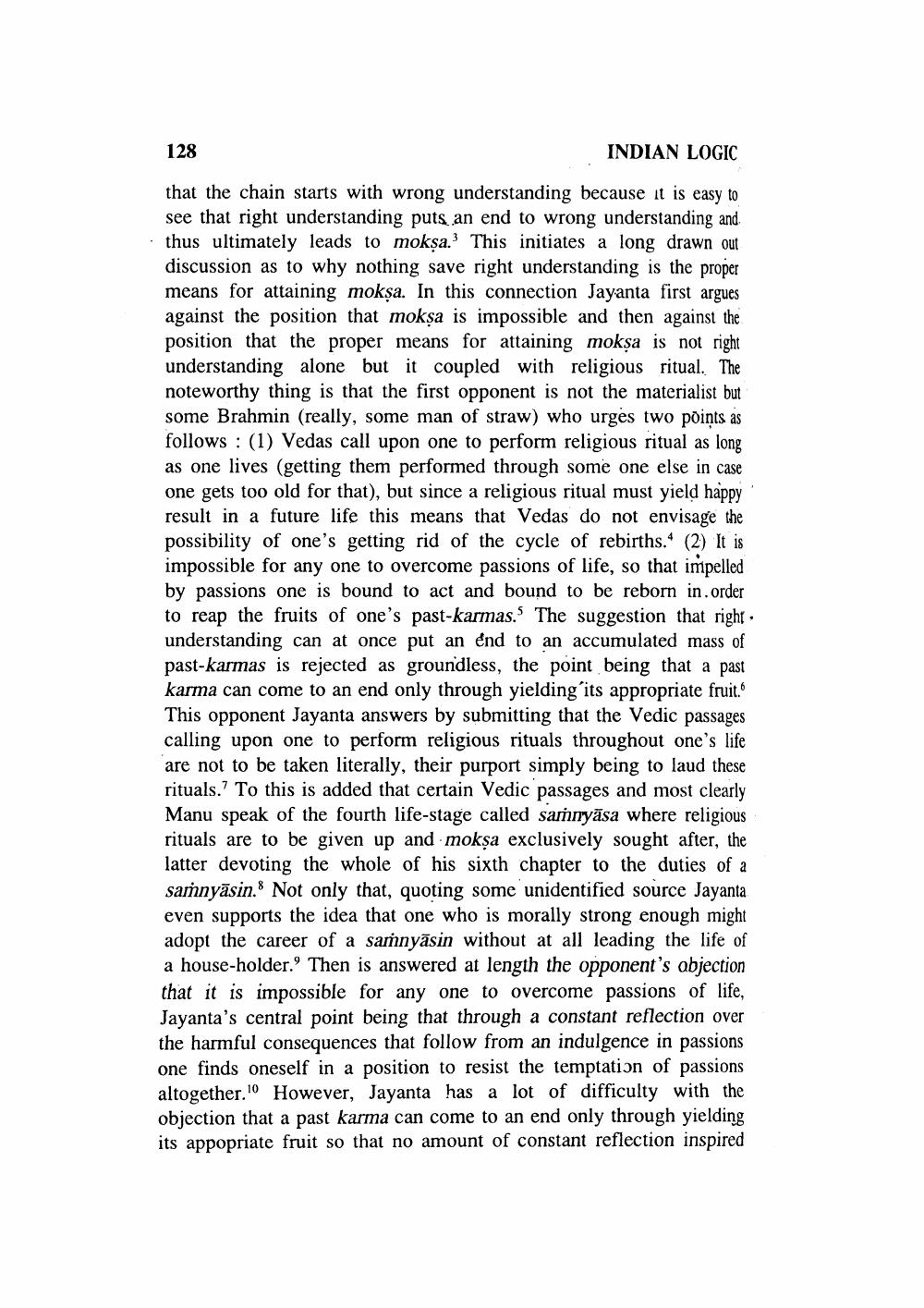________________
128
INDIAN LOGIC
that the chain starts with wrong understanding because it is easy to see that right understanding puts an end to wrong understanding and thus ultimately leads to mokşa. This initiates a long drawn out discussion as to why nothing save right understanding is the proper means for attaining mokṣa. In this connection Jayanta first argues against the position that mokṣa is impossible and then against the position that the proper means for attaining mokṣa is not right understanding alone but it coupled with religious ritual. The noteworthy thing is that the first opponent is not the materialist but some Brahmin (really, some man of straw) who urges two points as follows : (1) Vedas call upon one to perform religious ritual as long as one lives (getting them performed through some one else in case one gets too old for that), but since a religious ritual must yield happy result in a future life this means that Vedas do not envisage the possibility of one's getting rid of the cycle of rebirths. (2) It is impossible for any one to overcome passions of life, so that impelled by passions one is bound to act and bound to be reborn in order to reap the fruits of one's past-karmas. The suggestion that right - understanding can at once put an end to an accumulated mass of past-karmas is rejected as groundless, the point being that a past karma can come to an end only through yielding its appropriate fruit. This opponent Jayanta answers by submitting that the Vedic passages calling upon one to perform religious rituals throughout one's life are not to be taken literally, their purport simply being to laud these rituals. To this is added that certain Vedic passages and most clearly Manu speak of the fourth life-stage called sarnyāsa where religious rituals are to be given up and mokşa exclusively sought after, the latter devoting the whole of his sixth chapter to the duties of a samnyāsin. Not only that, quoting some unidentified source Jayanta even supports the idea that one who is morally strong enough might adopt the career of a samnyāsin without at all leading the life of a house-holder. Then is answered at length the opponent's objection that it is impossible for anyone to overcome passions of life, Jayanta's central point being that through a constant reflection over the harmful consequences that follow from an indulgence in passions one finds oneself in a position to resist the temptation of passions altogether. However, Jayanta has a lot of difficulty with the objection that a past karma can come to an end only through yielding its appopriate fruit so that no amount of constant reflection inspired




